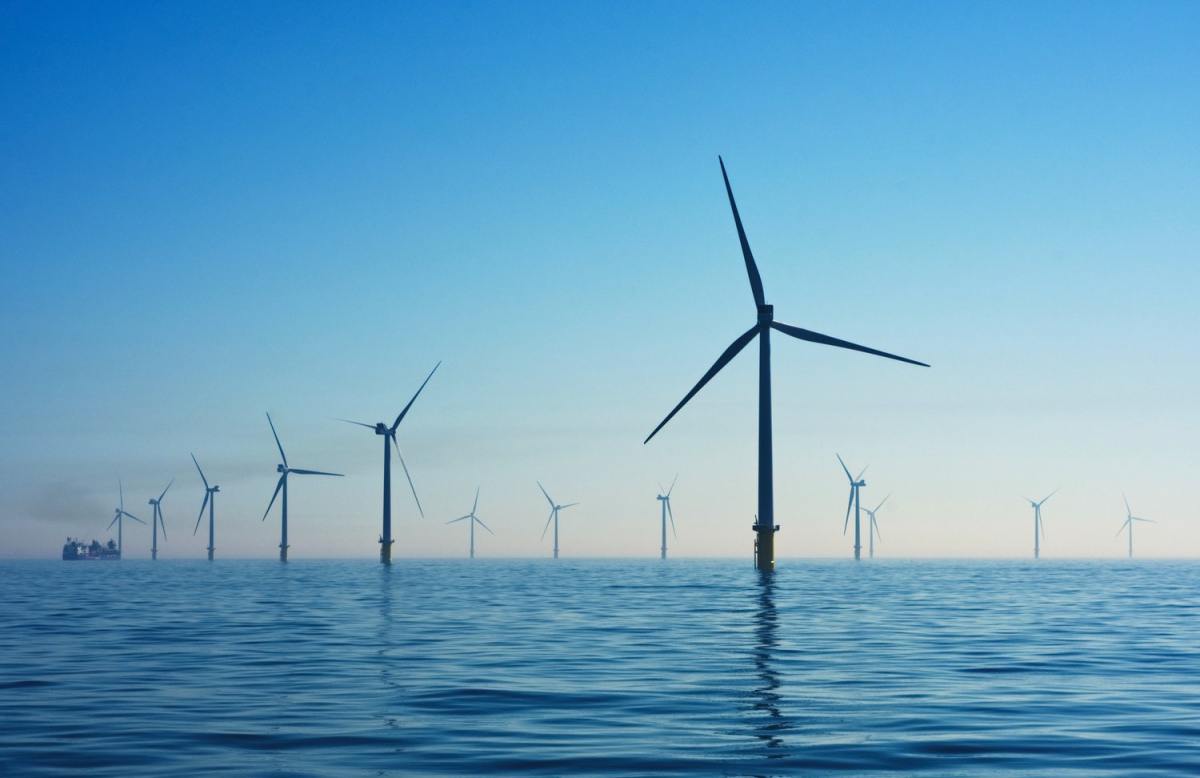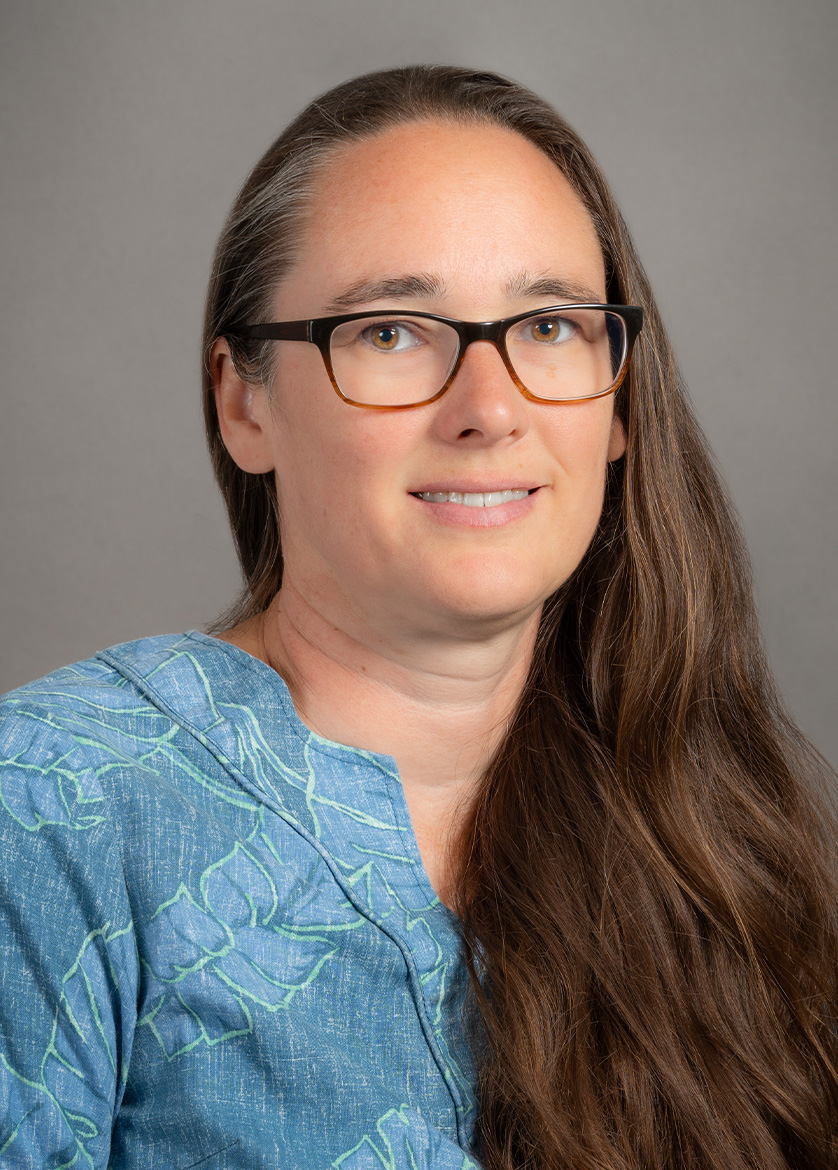Leah Pistorius
April 10, 2025

Offshore wind energy is a powerful force in the transition to renewable energy, offering new opportunities for energy independence and economic growth along US coastlines. In addition to other forms of marine energy, harnessed from waves, tides, and currents, offshore wind energy influences both national energy security and economic revitalization for coastal communities.

Shana Lee Hirsch, an assistant research professor in the Department of Human Centered Design & Engineering and associate director of the University of Washington's Pacific Marine Energy Center.
Dr. Shana Lee Hirsch, an assistant research professor in the University of Washington’s Department of Human Centered Design & Engineering, has been studying renewable marine energy for over a decade. Hirsch is an associate director of the UW’s Pacific Marine Energy Center (PMEC), a consortium of researchers from the University of Washington, Oregon State University, and University of Alaska Fairbanks, who work to explore the technical, environmental, and social dimensions of marine renewable energy. At the heart of this effort, Hirsch’s research ensures that the benefits of marine energy extend beyond innovation to directly support coastal economies, create jobs, and strengthen community resilience.
The big picture: why renewable marine energy matters
Offshore wind and marine energy present a major opportunity to enhance US-based energy production, strengthen energy independence, and drive economic growth. While these industries are still developing in the US, they have seen success abroad, particularly in countries like Scotland, where offshore energy is a billion-dollar industry backed by strong government investment. Seeing firsthand how Scotland has been able to build a thriving renewable energy sector, Hirsch has been studying how similar models could be applied in the US.
Since its establishment in 2008 by the U.S. Department of Energy’s Water Power Technologies Office, PMEC has played a key role in advancing this research, helping grow an industry with multiple spin-out companies in Washington and the Pacific Northwest focused on ocean observation and marine energy technologies. However, with recent federal funding cuts, that progress is now at risk.
Community impact: partnering with coastal communities
A key question driving Hirsch’s work is: How can offshore wind energy directly benefit the communities that host these projects? Dr. Hirsch and her collaborators are studying coastal communities to better understand their needs, priorities, and concerns regarding offshore wind. By engaging with local communities, they are working to ensure that renewable marine energy development is not just about large-scale infrastructure but also about tangible benefits such as job creation, workforce training, and long-term economic stability.
Now, uncertainty surrounding federal funding threatens this research. “Understanding the communities affected by offshore wind and marine energy is an essential piece of this work that we have been focused on—work that is not finished,” said Hirsch. “We are working with coastal communities to understand how they assess potential impacts and what they want from these projects. Researchers play a vital role by engaging directly with communities, laying the groundwork for successful industry development.” It is also important, notes Hirsch, that this research is not funded by industry so that the researchers can act as neutral partners.
Hirsch’s research has also built connections with Indigenous communities and fishing industries, ensuring their voices are part of the conversation about marine energy development. PMEC students, for example, have collaborated with tribes to support their energy planning efforts. Without continued funding, these relationships and the community-driven approach to offshore energy could be lost.
Economic growth and workforce development
Offshore wind and marine energy have the potential to create valuable jobs in coastal regions, from engineering and manufacturing to maintenance and operations. One spin-out company already launched from PMEC is MarineSitu, an environmental monitoring organization. Other companies launched from related National Marine Renewable Energy Centers with support from the Department of Energy's Water Power Technologies Office include wave energy converter organizations CalWave, C-Power, Oscilla, and Aquaharmonics; Ocean Motion, a wave energy observation organization; and Water Bros Desal, a wave energy desalination organization.
However, recent federal funding cuts put job opportunities at risk—not just in industry, but also in academia, where the next generation of top engineers, scientists, and researchers are being trained. “Without federal support, our experts are beginning to leave the US for countries with more stable investments in marine renewable energy, leading to a loss of talent that will have long-term consequences,” warns Hirsch.
Challenges and the path toward a sustainable future
Renewable marine energy represents a major opportunity to transform coastal economies while advancing clean energy goals. By studying successful international models and working directly with communities, Hirsch and her collaborators at PMEC are building a foundation for a thriving marine energy industry. But whether that work continues—and whether coastal communities see the benefits—now depends on funding support.
“The US risks falling behind just as it stands on the edge of becoming a global leader in the field,” said Hirsch. “The consequences of funding cuts are far-reaching, not just for the researchers and students whose careers are now in limbo, but for the broader effort to develop a sustainable, community-driven marine energy industry in the US.”
How you can support HCDE research
At the UW, we’re proud to conduct more federally sponsored research on behalf of the American people than any other public university — changing lives and boosting the nation’s global competitiveness. To create this impact, HCDE depends on forward-looking policies, wise investments, and the support of our community.
Here’s how you can help:
- Speak up: Share your stories about how UW research has benefited you and your community. Explain why federal research investment, like through the Department of Energy, matters to you. Join UW Impact if you want to receive the latest information and legislative updates about higher ed issues.
- Donate: Sustain innovation in HCDE. A gift to the HCDE Faculty Support Fund provides vital resources to faculty affected by budget cuts.
- Partner: Collaborate with HCDE to solve real-world challenges. Industry partnerships advance research, expand opportunities for students, and drive innovation.